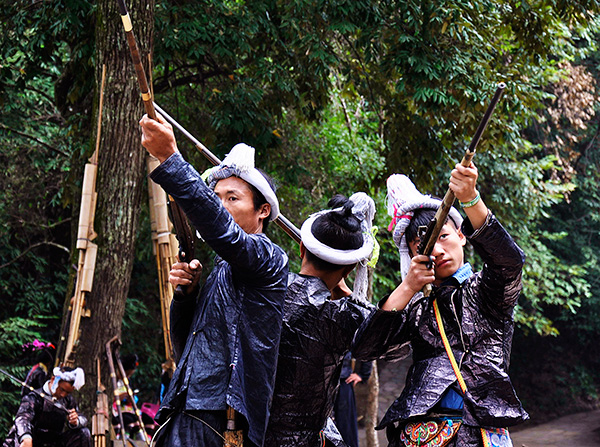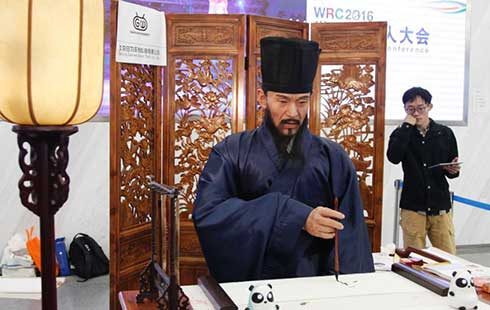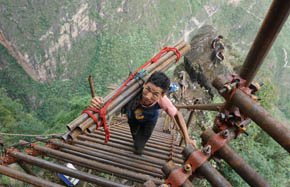Tradition under fire in rural village
 |
|
Villagers fire guns during a performance for tourists in Biasha village, Guizhou province, in October. Liu Chaofu / For China Daily |
Like his father, Jia Shengxiang makes his living with a gun. His father used the weapon for hunting; Jia fires it during performances for tourists.
"It is our tradition to carry guns," said the 42-year-old from the Miao ethnic group. He lives in Biasha village in southwestern province of Guizhou.
Biasha's 2,500-plus villagers have largely held on to their unique traditions. The village is so safe that people keep their doors open, even when they leave their homes. Villagers don't marry outsiders, and marriage is forbidden between people with the same surname.
Known as the "last gunner tribe" in China, Biasha's villagers have used guns to hunt and protect themselves for centuries.

"To us, it is a weapon, but it is not dangerous, because we rarely have disputes," Jia said. "Even if we have conflicts, guns are not the right solution."
A coming-of-age ceremony is held for boys when they are 15 years old, during which their heads are shaved, leaving hair in the center that is worn in a bun. They are also given a gun, which signifies they are strong enough to hunt.
China banned the possession of firearms decades ago, but Biasha's villagers are an exception, although they are no longer allowed to hunt.
Like guns, trees also have a lofty role in village culture.
"When we are born, our parents plant a tree for us," Jia said.
When someone dies, villagers chop down the person's tree to make a coffin before planting another tree on his tomb, so that his life "continues in another way", Jia said.
People in Biasha believe that humans, like trees, should be trimmed for healthy growth, which is why men wear a bun with shorn sides.
As China develops, Biasha's customs have become an attraction for tourists.
Men from Biasha lineup and fire their guns at the sky towel-come tourists. They perform Miao dances and show them how to shave with a sickle.
Parked cars now line the main road in the once isolated village, and trucks carrying goods blast their horns as they pass through.
In 1998, Shi Qingxiang opened the village's first guest-house, called "Home of the Gunners".
Back then, transportation was inconvenient. Visitors to Shi's guesthouse numbered only in the hundreds each year-mostly dedicated photographers and painters.
Travelers increased after an expressway opened in 2013 and a high-speed train line serving Congjiang began service in 2014. So far this year, Shi's guesthouse has hosted 10,000 overnight guests.
There are now eight guest-houses in Biasha.
Contact with tourists also helped villagers learn about outside opportunities.
"Currently, there are more than 100 people working in the counties or cities. Most of them commute every day," said Gun Xiangdiu, the 52-year-old village head.
However, reluctant to appear different, many migrating villagers, like Gun's two sons, have cut their buns.
"I told my fellow villagers at the meeting to keep their buns, but to no avail," he said with a sigh. Only half the villagemen still have their traditional hairstyle.
"If they abandon their bun and Miao-style dress, Biasha will be gone," he added.



















